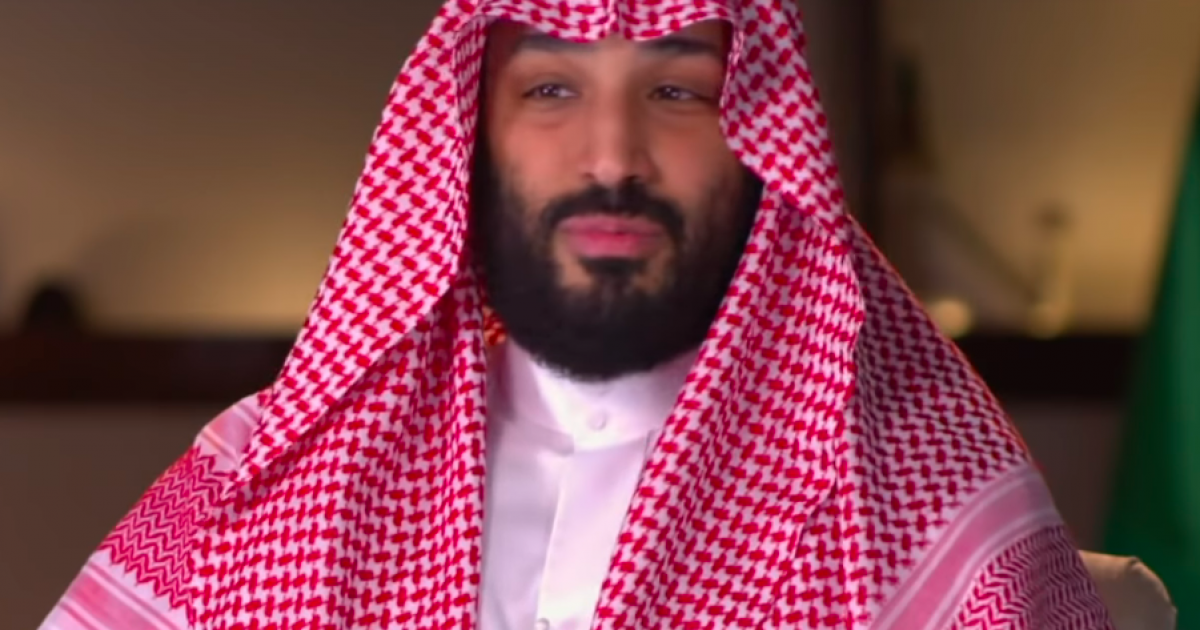
In recent weeks, the microscope has been on Saudi Arabia ever since the CIA published a report which implicated Saudi Crown Prince Mohammed bin Salman (MBS) in the murder of Saudi journalist Jamal Khashoggi back in October 2018.
On the campaign trail, Biden talked tough about holding the Saudi Crown Prince accountable for the murder he allegedly order. However, once in office, Biden has softened not only his tone but his course of action against Saudi Arabia.
From the looks of it, MBS appears to be in the clear, despite bipartisan outrage regarding the gruesome death of Khashoggi.
“The Biden administration defended its decision not to sanction Saudi Arabia’s Crown Prince Mohammed bin Salman personally for his role in the death of Washington Post columnist Jamal Khashoggi, as the White House confirmed no more actions against the kingdom are imminent,” Stars & Stripes recounted. So far, American arms sales to Saudi Arabia have not ended despite the Biden administration’s threats to discontinue them due to the international outrage stemming from the brutal nature of the Saudi-Yemeni conflict.
Back to Khashoggi, the declassified intelligence documents alleged that MBS “approved” the hit on the Washington Post journalist. This has spurred several elected officials to call for sanctions against MBS, while also raising speculation regarding maneuvers to oust MBS from leadership roles in the Saudi royal court. In the end, the Biden administration rationalized its decision for not sanctioning MBS on the basis that Saudi Arabia is an ally.
“The United States has not historically sanctioned the leaders of countries where we have diplomatic relations or even some where we don’t have diplomatic relations,” White House Press Secretary Jen Psaki noted on “Fox News Sunday.” “Behind the scenes there are a range of diplomatic conversations.”
Travel restrictions were the only sanctions placed on 76 Saudi officials implicated in this alleged murder.
“The recalibration of relations with Saudi Arabia began on January 20th and it’s ongoing,” the White House said in a statement. “The Administration took a wide range of new actions on Friday. The President is referring to the fact that on Monday, the State Department will provide more details and elaborate on those announcements, not new announcements.”
Regardless of what happened to Khashoggi, the U.S. needs to start re-thinking its relationship with Saudi Arabia as well as its overall presence in the Middle East. Ultimately, what happened to Khashoggi was gruesome but it’s ultimately an internal matter Saudi Arabia must handle and assume the consequences of.
The best thing the U.S. can do is to maintain normal relations with the country but stop dumping weapons on Saudi Arabia and trying to take part in Saudi-Iranian Cold War. These conflicts should be handled by the Saudis and their Gulf allies. With how healthy these countries have become, they should use their newly-acquired resources in an earnest attempt to actually pay for their defense and settle their own conflicts in the area.
The U.S. has far too many problems at home and should instead refocus it foreign policy efforts in the Western Hemisphere, especially on its border. The Middle East will in all likelihood remain unstable regardless of what the U.S. does, which is characteristic of the region. Let other great powers like China and Russia bleed themselves dry by getting more involved in the area. The U.S. should not spend a dime nor let another soldier be sacrificed in one of the world’s perpetually explosive hotspots.



